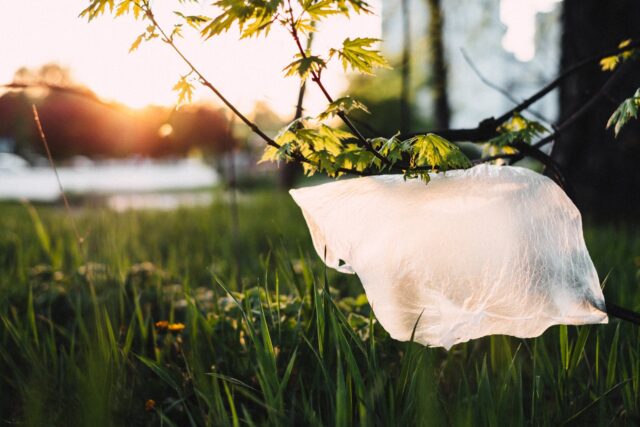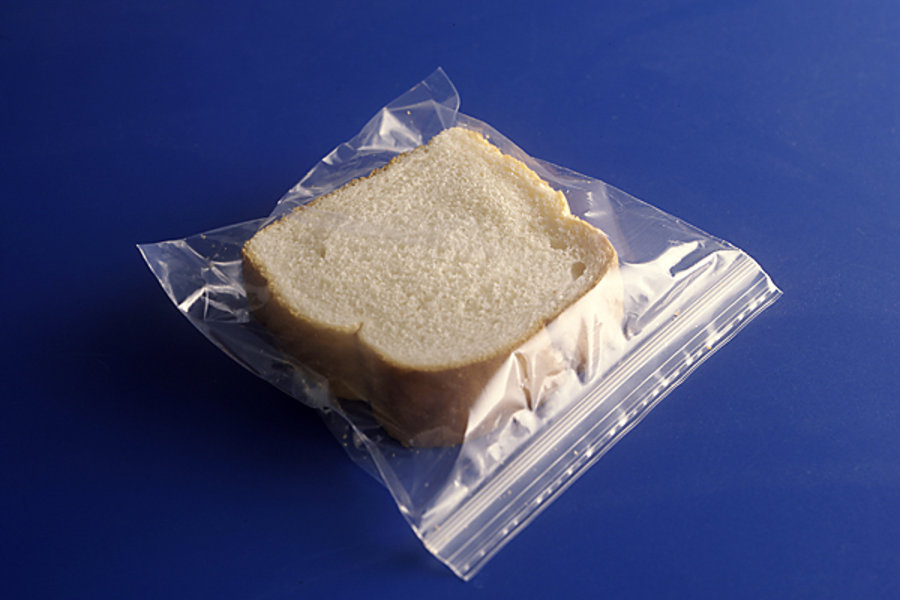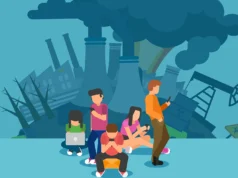Plastic bags cause a lot of harmful effects on the environment and us. They are used because of convenience, but we ignore their negative consequences. You should note that plastic bags affect all types of organisms and biomes. The effects are evident across the world, and there is a need to address this issue. They continually harm the natural environment from the start to the end of their life cycle.
Plastic bags are everywhere. They are used in homes, offices, schools, and travels. The world has become so dependent on them because they are readily available. However, it is quite surprising to note that the world was at one time plastic-free. Since 1940, over-reliance of plastics has resulted in serious environmental problems like groundwater contamination, ocean debris, and crowded landfills.
You should note that plastic bags do not decompose; instead, they photodegrade by breaking down into smaller toxic substances. It takes over 500 years for a plastic bag to break down in the environment. When it breaks down, plastic particles do contaminate the waterways and soil. Also, they enter the food web when they are ingested by animals albeit accidentally. The following are some of the harmful effects of plastic bags.
Alternatives to Ziploc Bags
There are a lot of eco-friendly alternative to ziploc bags or plastic bags. In fact, the environment provides a range of alternatives that include paper bags, jute bags, reusable bags, and bio-degradable bags. Most of these bags are made of biodegradable material that is obtained from plant fibers. The materials are eco-friendly, and they do not have adverse effects on the environment. These are the alternatives:
Jute Bags

These bags are made from jute yard. They are used for packing different agricultural and industrial goods such as oil, seeds, salt, grains, sugar, and other commodities. These products have a huge demand in agricultural and industrial sectors for wrapping and packing of agricultural and manufactured products. Moreover, they are ideal for grocery purposes and shopping. Sacks or heavy-duty jute bags for used for packaging of agricultural products.
Jute carriers and shopping bags are one of the best eco friendly alternative to ziploc bags because they are environmental-friendly. Those that are used in agro-based commodities are treated with vegetable oils so that they can destroy the harmful effect of hydrocarbons. They are known as hydrocarbon free bags. About 97% of world jute is grown in India and Bangladesh. These are the benefits of using jute bags:
Raw materials are obtained from lush green jute plants. Thus, these plants help protect the environment and even maintain ecological balance by offering the required oxygen.
Jute bags are both re-usable and bio-degradable, but they are compostable as they can turn into manure.
The production process of jute bags is quite simple, unlike synthetics that involve the use of toxic chemicals.
Jute bags can preserve the quality of food items such as wheat and rice because the bags have inherent aeration feature and are ideal for storage purposes. Also, jute bags are quite easy to handle both mechanically and manually.
Paper Bags

For many years, paper bags have been presented as an environmental-friendly option as compared to the plastic shopping bags. Before the introduction of the jute bags into the market, paper bags were commonly used for shopping purposes. Paper has natural fibers, and it is obtained from a renewable source. Also, they can be recycled. Hence, they do not have to fill our landfills. Scientific studies reveal that paper bags are more eco-friendly as compared to plastic bags.
Also, leather bags are biodegradable and can be used for a wide range of uses.
Also, the manufacturing processes for paper bags is better than that of making plastic bags. It is advisable for governments to stop putting a levy on paper bags as this may result in the consumption of plastic bags. Instead, a levy or a ban should be imposed on shopping bags.
Biodegradable Plastic Bags

These types of bags are made in plastic industries that use materials and processes that are less harmful to the environment and the soil. Even then, they are still toxic to the environment. Therefore, alternative biodegradable bags that are not made of plastic are most welcome. There is a need to carry out extensive research on finding alternatives to plastic bags. It is advisable for consumers to buy reusable shopping bags that will reduce dependency on the use of plastic bags to a great extent. In this way, the toxicity levels of the environment will be reduced to manageable levels.
Reusable Bags

Nowadays, there are different types of reusable bags that are alternatives to plastic bags such as baskets or rigid plastic boxes. Woven baskets and cloth bags are some of the oldest containers that were used by humans. The use of these given alternatives is dependent on a wide range of factors such as country, age, price, status, cultural factors, and availability. It is important to note that reusable bags can still cause a certain level of toxicity to the environment. The best thing is to use biodegradable shopping bags made of jute.
Reasons to Ban or Stop Use of Plastic Bags
Expensive to Clean
The amount of money used in cleaning up plastic bag waste is estimated to be 17 cents dollars per bag. This means that a taxpayer will spend about $90 each year for cleaning plastic bag waste. In addition, the bags cost about 5 cents each. Therefore, plastic bags are not free at even when given at a supermarket or shop. People pay a lot of money to buy them and even when reusing them. This is a good reason why plastic bags should be banned.
There are lots of costs associated with the production and distribution of plastic bags. A good example is the environmental costs and production expenses.
Complex Recycling Process
The truth is that plastic bags are quite expensive to recycle. They are known to present a serious challenge as far as recycling is concerned. In fact, most recycling facilities lack the capacity to recycle plastic bags. Therefore, the recycling rate for plastic bags is about 5%.
As noted above, plastic bags are known to last longer. In fact, they last for years, and we use so many of them. Since they never degrade completely, it means that a lot of them are produced by the companies and then re-introduced into the environment. Thus, when there are a lot of plastic bags on the environment, there is a lot of pollution. The people, plants, and animals suffer the consequences.
Even if recycling of plastic bags is done, they will still end up in the landfills and oceans. In fact, recycling of plastic bags does not mean that they cannot be dumped in the ocean or landfills. Even recycled plastic bags are not biodegradable and can cause serious effects like non-recycled plastic bags.
Keep Streets Clean
Most towns are not clean because people do not care where they throw their garbage. For instance, they do it in the landfills, streets, and water bodies. This explains why you will find wastes littering our streets creating an eyesore and affecting the aesthetic value of our cities.
Help Spread Awareness
By banning the use of plastic bags, we can keep our streets and environments clean. Moreover, this helps send a message to people about the need for protecting the environment. People know that banning plastic is for a given reason and they can appreciate such important information. Also, they can start to understand that plastic has negative effects on humans and the environment.
When the ban takes effect, there will be a need to improve our technology that can boost other businesses. For instance, there will be a need to produce sophisticated bags. You will need great manpower by factories so that they can make greener and eco-friendly materials.
Save Money
Banning of plastic bags will help save money. This is because plastics cost money taking into account from manufacturing processes that use petroleum and then they are thrown away. Since people are ready to stop the use of plastic bags, governments should go ahead and ban them. Most people have witnessed how these plastic bags have harmful effects on the environment, and they are ready for the change. This requires the use of environmental-friendly materials.
Create Jobs
Although banning plastic bags will result in job losses, it can also result in the creation of new jobs. This is because there is a need to create products that are sustainable in terms of research, processing, and manufacturing. Also, there will be a need to plant trees such as jute for making sacks. This will boost the agricultural sector and save the environment.
Focus on Waste Diversion Challenges
Some cities have set various targets they want to achieve. For instance, some want to achieve over 80% waste diversion. It is not possible to achieve this if the use of plastic bags is allowed. By banning plastic bags, governments can place their attention and focus on acquiring green bins to different apartment buildings. In this way, they can meet waste diversion targets.
Energy Intensive Production Process

To understand the harmful effect of plastic bags on the environment, you need to start from the way they are made. As you know, they are made of plastic. Plastic in its simplest form is petroleum or oil. It is estimated that about 10% of the oil produced in the world is used in the manufacture of plastic. In the U.S. over 12 million barrels of petroleum is used in the manufacture of plastic bags. They produce over 110 billion plastic bags.
Petroleum cannot be used in its natural form to make plastic bags; it must be mined, shaped, and refined. All these processes require an enormous amount of energy that is obtained from burning fossil fuels such as coal and oil. The issue here is a large amount of energy used in the production process. The use of oil has contributed to climate change.
Whenever oil is produced or burned, it generates greenhouse gases that create a greenhouse effect. This means that the earth must absorb a lot of sun’s energy. This results in an increase in the overall temperature. The danger is that even a small change of the earth’s temperature can cause massive effects around the world.
When the temperature of the earth increases, a lot of things will change. In the coastal regions, the main issue is increasing in sea level rise that results from melting glaciers and ice. For instance, some island countries such as the Maldives can be submerged with just 40 inches increase in sea level. Also, some cities such as Venice in Italy are built at sea level. Therefore, any rise in sea level may lead to disastrous results.
Climate change results in increased frequency and strength of storms, ocean acidification, droughts, and changing water patterns. If nothing is done, the effects will become more prevalent and stronger affecting animals, humans, and plants all over the world. It is vital to note that the raw materials used for the production of plastic bags are non-renewable.
Harmful Effect in the Waterways and Sea
The ocean has been largely affected by plastic waste. It is estimated that over 10 million tons of plastic get their way to the ocean each year. Unfortunately, some plastics release harsh chemicals into water resulting in health issues such as cancer. The main issue is the consumption of plastics by marine life.
Ocean birds, turtles, and fish are the most affected by the accumulation of plastic waste. In fact, over 100 million marine animals and fish die each year from consuming plastic waste. Usually, the animals eat plastic, which the body may not digest. This blocks the digestive system, resulting in death.
This is a serious issue for humans because they also consume fish. In turn, they end up eating plastic that is contained inside the fish. Turtles are also affected by the presence of plastics in the sea. They confuse plastic bags for the jellyfish (this is their main source of food) and consume them unknowingly. Recent studies show that over half of the world’s turtles have consumed plastic bags.
A lot of people around the world rely on oceans for their survival. Releasing plastic waste into the ocean is common in most countries. The strong ocean currents carry it far from the original source. This results in the pollution of the ocean.
Usually, currents gather to form gyres and carry the plastic bags waste into a given area of the ocean. The ocean is known to have five gyres. The Great Pacific Garbage Patch is an example. Located in the Pacific Ocean in the North, it has over 2 million tons of waste. All types of waste are found here, but the major component is plastic bags.
Harmful Effects on Land
Plastic bags contribute to land pollution. The fact that most of them are single use means that they can be blown by the wind and carried long distances and get stuck in trees. If they end up in storm drains, they get their way to the sea or contribute to clogging drains.
Clogged storm drains are likely to cause flooding during heavy rains. Also, they create large areas of stagnant water that becomes breeding grounds for insects such as mosquitoes that carry diseases. Even if plastic shopping bags are well-disposed, they can end up in the landfills. They use a lot of space and may take over 500 years to degrade. This results in an enormous buildup of plastic bags.
Negative Effects on Animals
Just like in the sea, animals also consume plastic bags on land. For instance, animals eat food wrappers, plastic bags, and waste resulting in serious digestive problems that may result in death. Also, small animals can get trapped with plastic bags around their heads making them suffocate. It is unfortunate that animals suffer harsh consequence because plastic waste has not been disposed of correctly. This is not their fault, but that of humans.
Effects on Plants
You will be surprised to learn that even plants are not protected from the harmful effects of plastic bags. Whenever plastics breakdown in the soil; they release harmful chemicals such as BPA that harm microorganisms that are food sources for plants.
Also, plastic plants can easily get caught on plants. This prevents plants from getting the much-needed nutrients and sunlight for survival. Ideally, the delicate nature cycle that ensures ecosystems are balanced is put into jeopardy.
The truth is that the environmental effects of using plastic bags have been witnessed across all sectors and regions of the earth. In fact, the effects are quite dramatic and dangerous to all living things. If changes are not down, it will take many years to reverse natural cycles. It will be difficult to tell what happens to future generations.
Harmful Effect to Humans

Some chemicals released by plastic bags can disrupt the normal functioning of organs and hormones in the body. In fact, most plastic fragments can get their way to food consumed by human beings. Once marine animals eat these chemicals, they enter the food web and then consumed by humans. Also, when people swim in water bodies such as oceans, they get exposed to these harmful chemicals. When they consume them, their health is affected, and they can develop certain cancers or other serious conditions.
Conclusion
Plastic bags are causing irreversible damage to our environment, particularly to agriculture across the world. In fact, the environment including water, air, and the soil is affected by the use of plastic bags. You should note that plastic bags are manufactured with the use of fossil fuels that emit harmful gases that can be detrimental to different life forms in the earth.
Poor disposal of plastic bags and inefficient waste management in third-world countries is causing a lot of harm to the environment. In fact, poor disposal of plastic bags can clog drain pipes, resulting in destructive floods that cost billions of dollars to repair. Also, they are problematic to the national governments and livelihoods of local people because of the loss of agricultural potentials. Moreover, they can have a negative impact on the tourism industry. You should not forget the high cost of cleaning up.To be successful in this environment saving endeavor, all people and governments must be united to tackle this.







